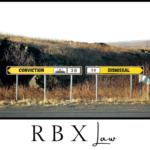A great strategy for avoiding legal trouble is to avoid police encounters. The key to avoiding Santa Barbara police encounters is knowing about the police: who they are, where they are, when they patrol, and what they are looking for.
Who they are
The Santa Barbara Police Department patrols the City of Santa Barbara. The Santa Barbara Sheriff’s Department also independently patrols the City of Santa Barbara because it is in the County of Santa Barbara.
Where they are
According to the Santa Barbara Police Department Community Crime Map, a large number of police encounters occur between Figueroa and Gutierrez Streets around State Street. A large number of encounters also occur in the Funk Zone and on the Eastside (between State Street and Milpas Streets). The odds of avoiding Santa Barbara police increases greatly if you avoid these specific areas.
When they patrol
The police and sheriff patrols Santa Barbara at all times of the day and night. However, many of the police encounters listed on the Community Crime Map occur between 10pm and 1am.
Santa Barbara law enforcement has an especially strong presence at certain times of the year. One example of this is the first week of August for Fiesta.
What are they looking for
Many people will inevitably end up around lower State Street, the Funk Zone, or the Eastside between 10pm and 1am. It is not a crime to be in these areas and this is where people live and where they gather to party and socialize in Santa Barbara. Fiesta and other celebrations draw large crowds to these areas.
The main things law enforcement looks for are possession of drugs or alcohol, alcohol intoxication, and violent or aggressive conduct. They also look for theft and driving under the influence. Although law enforcement focuses on these behaviors, they will act to arrest any person if they have probable cause to believe that person committed a crime.
For people who decide to attend gatherings at the above places and times, avoiding certain behaviors is crucial to avoiding Santa Barbara police:
1. Do not openly carry alcohol in public.
Even if you are over 21, you are inviting a police encounter by openly carrying alcohol in public. This is true even if the container you are carrying is not an alcohol container. Holding red cup or water bottle is probably still suspicious enough to warrant a police encounter. If you do carry alcohol containers like alcohol or beer bottles it is best to keep them concealed inside a bag, purse, backpack, or other container.
2. Do not consent to a search of your private items.
If police stop you and ask you to look inside your bag, purse, backpack, etc., politely tell them that you do no consent to a search of your personal private property. If they demand to search your property, you should not resist. Instead, continue to state that you do not consent.
3. Do not be alone and intoxicated.
If you are under the influence of alcohol or drugs, do not wander alone. This gives police reason to believe you will be unable to care for yourself, which is grounds for arrest. Make sure you are with a group of friends that you trust, and who will not leave you behind.
4. Do not antagonize or offend the police.
Police expect to be treated with respect. Think of your first grade teacher. If you were to show them open hostility or disrespect, you would be headed straight to the principal’s office. If you are hostile or disrespectful to the police, you are likely to be headed straight to jail.
5. Do not get into altercations with bouncers or other people.
There are many bars and clubs in downtown Santa Barbara. If you are asked to leave, it is best to leave. If you refuse to leave, you may get into a physical altercation with a bouncer or other security. Police are much more likely to arrest a drunk person than a bouncer.
Santa Barbara attracts many people from outside areas. You are likely to encounter people you do not know if you are drinking at night in downtown Santa Barbara. Try to avoid getting into arguments or altercations with people you do not know. If you get into a fight, law enforcement could arrest you and charge you with a crime even if You can you did not initiate the fight.
6. Avoid sexual conduct while intoxicated.
It is great to meet people at bars or clubs. However, having sexual contact with someone who is intoxicated can result serious charges, including rape and sexual assault. The best practice is to meet people at bar or club, and then consider having sex once you have gotten to know each other better.
Want to learn more about avoiding Santa Barbara police? Contact RBX Law. We provide free consultations and lectures on police encounters.



